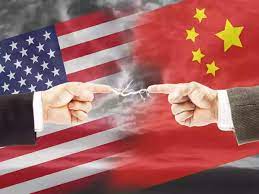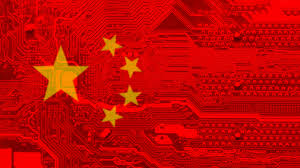Emerging Developments in U.S.-China Trade Relations (Part I of II)

Alex Cotoia, Regulatory Manager and Compliance Consultant at The Volkov Law Group, rejoins us for a two-part posting on emerging developments in U.S.-China trade issues. Alex can be contacted at [email protected].
As diplomatic tensions between Washington and Beijing continue to escalate, U.S. owned businesses dependent on the sale and export of more sensitive advanced technologies to the People’s Republic of China (“PRC”) should take heed of following emerging developments in the export and sanctions space:
Commerce Sanctions Adds Twenty-Seven Parties to Entity List
On November 26, 2021, the U.S. Department of Commerce’s Bureau of Industry and Security (“BIS”) added twenty-seven entities and individuals—among them, a significant number of Chinese companies—to BIS’s Entity List.[1] The Entity List includes persons and institutions for which reasonable cause exists to believe that such persons and institutions pose a significant risk of involvement or potential involvement in activities deemed contrary to U.S. foreign policy interests.
Among the entities and individuals recently designated by BIS for inclusion on the Entity List are three affiliates of Hong Kong-based Corad Technology Limited—an enterprise previously designated for inclusion on the Entity List on August 14, 2019.[2] These affiliates include: (1) Corad Technology (Shenzhen) Ltd. based in mainland China; (2) Corad Technology Pte Ltd. based in Singapore; and (3) Corad Technology Japan K.K. According to BIS, reasonable cause exists to believe, based on specific and articulable facts, that Corad Technology and its affiliates have been involved in the sale of U.S.-origin technology to Iran’s military and space programs, North Korean front companies, and Chinese government and defense industry-controlled entities. Five additional Chinese entities—namely, Hangzhou Zhongke Microelectronics Co., Ltd.; Hunan Goke Microelectronics; New H3C Semiconductor Technologies Co., Ltd.; Xi’an Aerospace Huaxun Technology; and Yunchip Microelectronics—were designated for inclusion on the Entity List for their purported support of the PRC’s military modernization efforts. Moreover, three entities in China—Hefei National Laboratory for Physical Sciences at Microscale, QuantumCTek Co., and Shanghai QuantumCTeck Co. Ltd.—were added to the Entity List for both acquiring and attempting to acquire U.S.-origin items for military applications. Finally, BIS designated several other Chinese entities—namely, Shaanxi Zhi En Electromechcanical Technology Co., Ltd.; Poly Asia Pacific Ltd. (“PAPL”) and Peaktek Company Ltd.—on the Entity List for contributions to Pakistan’s “unsafeguarded nuclear activities”—underscoring the risk posed by the diversion of U.S.-origin technology by unscrupulous actors to suspect regimes.

While China’s involvement with the development of Pakistan’s nuclear weapons program is not new—indeed, China is widely believed to have furnished Pakistan with highly enriched uranium, ring magnets necessary for uranium processing, and education for nuclear engineers since the 1970s[3]—the emergence of newer, more efficient, and exponentially more lethal enhancements to that technology would further contribute to instability in a region known for its political volatility. Commerce’s recent actions send a clear and coherent message to Beijing that the United States is serious abouts its own national security—and the effects of the PRC’s actions on the international community.
As a result of Commerce’s latest actions, all twenty-seven entities and individuals designated by BIS are subject to license requirements for the export, reexport or transfer (in country) of all items subject to the EAR. Additionally, Commerce announced that a presumption of denial would apply by default. Finally, no otherwise valid license exceptions may be utilized with respect to any of the named entities or individuals.
Commerce Subject to Increased Legislative Scrutiny

Preceding Commerce’s recent announcement, eight Republican Senators signed a November 15, 2021 letter that pressured Commerce Secretary Gina Raimondo to more aggressively enforce the so-called “Foreign Direct Product Rule.” Although originally targeted by the previous Administration at Huawei specifically, the latest revision to EAR General Prohibition Three incorporated footnote 1 to the Entity List and applied a control to any foreign-produced item that (1) will be incorporated into, or will be used in the production or development of any part, component or equipment produced, purchased, or ordered by any entity with a footnote 1 designation in the license requirement column of the Entity List; or (2) involves an individual or entity with a footnote 1 designation as a party to any transaction involving the foreign-produced item (e.g. as a purchaser, intermediate consignee, ultimate consignee or end user). These controls include Commerce Control List (“CCL”) Category 3 (Electronics—including technology required for the production of certain microprocessors), 4 (Computers), and 5 (Telecommunications and Information Security) items when the person has “knowledge” that the foreign produced item is bound for an individual or entity designated by the BIS on the Entity list.[4]
According to the letter signed by a plurality of the minority members of the Senate’s Committee on Commerce, Science and Transportation, “lax enforcement” of the Foreign Direct Product Rule has encouraged the illegal export of items by companies like Seagate Technology to Huawei without an appropriate license. “Unless BIS enforces this rule with the speed the situation necessitates,” the Senators warned, “additional suppliers of sensitive technology will likely engage in unlawful trade practices with companies closely connected to adversarial governments.”
[1] See, Addition of Entities and Revision of Entries on the Entity List; and Addition of Entity to the Military End-User (MEU) List, 86 Fed. Reg. 67,317 (Nov. 26, 2021).
[2] See, Addition of Certain Entities to the Entity List, Revision of Entries on the Entity List, and Removal of Entities From the Entity List, 84 Fed. Reg. 40,241 (Aug. 14, 2019).
[3] See, The Strategic Implications of China’s Nuclear Aid to Pakistan available at https://www.heritage.org/node/20142/print-display.
[4] See, Addition of Huawei Non-U.S. Affiliates to the Entity List, the Removal of Temporary General License, and Amendments to General Prohibition Three (Foreign-Produced Direct Product Rule), 85 Fed. Reg. 51,596 (Aug. 17, 2020).
















1 Response
[…] Source link […]